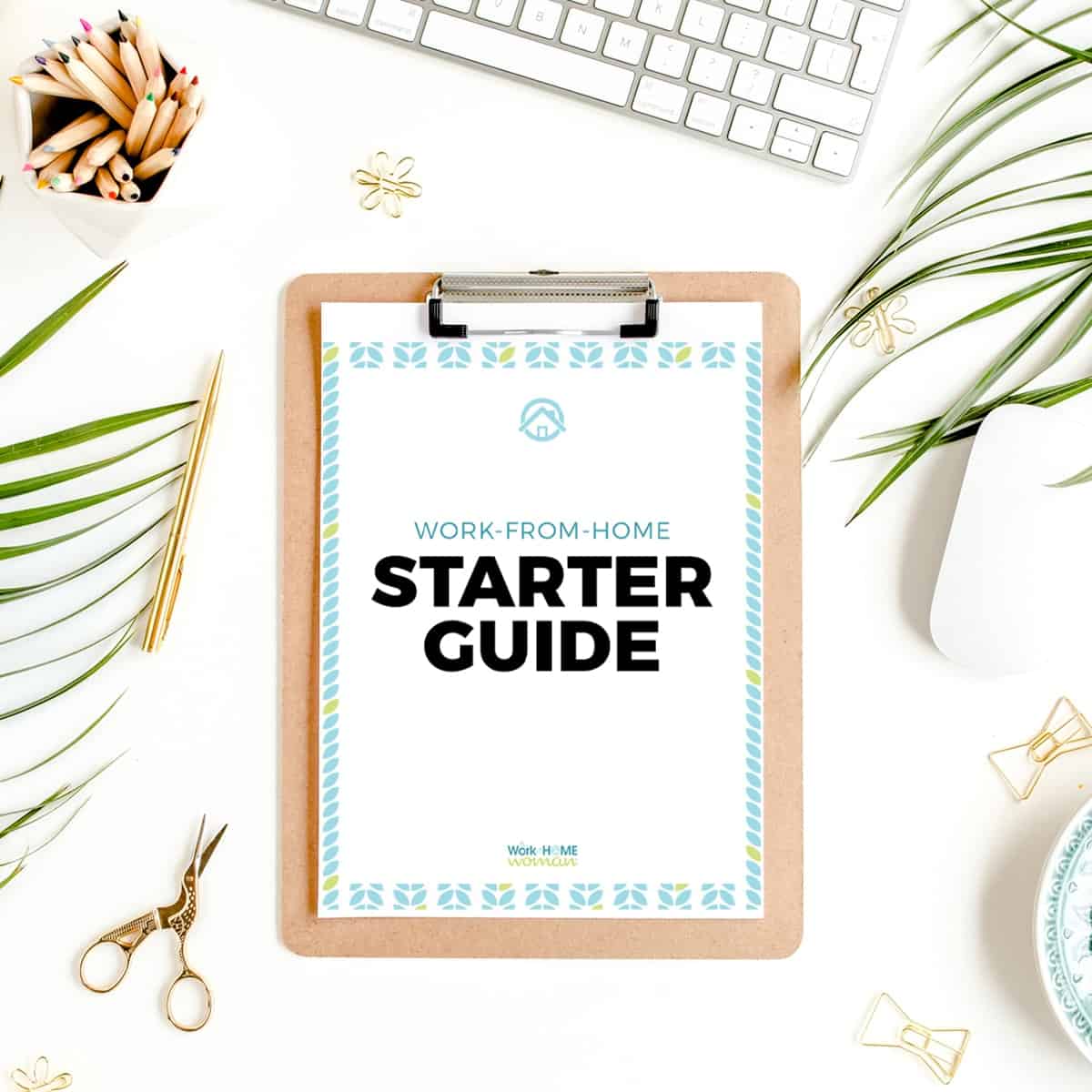While working from home can equate to desired levels of flexibility and autonomy, it typically requires a careful balancing act. Many people love the opportunities associated with working from home but can feel buried in stress at times.
While controlling the sources of stress in your workflow and your life can seem like an impossible challenge, it is attainable.

The simple guidelines and tips in this article will help you decrease stress in your life.
1. Identify the Stress
Start by identifying your stressors and distractions at home. This is the first step to decreasing stress and inefficiencies.
These realizations look different for everyone, as the intricacies of our lives vary. Pinpointing exactly what stresses you out the most and writing those things down, generally, helps realization set in. Display the sources of stress in a public area, so you are aware and reminded, rather than ignoring the sources.
2. Find a Rhythm in Your Schedule
I get it; this is not always possible. There are still going to be variables in life that are beyond our control. You can’t predict those mornings when a child wakes up sick or the car won’t start. At times, it can even feel like the fluidity of working from home leaves you spreading yourself too thin.
But that doesn’t mean balance cannot be achieved. Have a loose set of scheduling guidelines, and stick to it as much as possible. Think of it as a template for success. Remember that templates aren’t set in stone and focus on the end goals rather than the exact steps to getting there. Then combine the characteristics of your life’s unique rhythm with deadlines that work accordingly.
3. Set and Follow Personal Deadlines
Especially when experiencing procrastination issues, create your own deadlines even if they aren’t explicitly given to you. Freedom within scheduling can cause a great amount of stress if you procrastinate regularly.
Try giving yourself ‘effective leeway.’ Deadlines are important because they can end stress related to procrastination. However, if the deadlines themselves are causing you stress, then the whole concept is flawed. Give yourself enough time to accomplish tasks and include a little bit of wiggle room.
For example, if you estimate a task will take five hours to complete, try giving yourself five and a half hours. Doing so can eliminate some of the pressure and ultimately decrease stress throughout the day.
4. Take Care of Big Tasks Without Over-Multitasking
Experiment with tackling the hardest or largest portions of your workload when you feel most energetic. This is a go-to strategy for me because I often try to do too much in the early mornings despite not really being a morning person. Right around noon, my mind kicks into high gear, and I can accomplish much more in the afternoon rather than forcing myself into a less productive early morning dash.
I address tasks without too much multitasking. Too much multitasking can cause unnecessary levels of stress to surface. Separate your day into chunks and work on the easiest ‘autopilot’ tasks when you are tired or approaching burnout.
5. Disconnect From Distracting Tech
It’s impossible to dispose of all contemporary technology; it’s literally ingrained into our lives at this point. But that doesn’t mean technology has to be a distraction. Determine what’s most important – the tech that is essential to your success, not a hindrance.
One way to do this is by carefully monitoring your use of technology. Do you find yourself checking your phone too often or getting involved in long text message conversations that could honestly wait until after work? Simply check your phone and email at designated times whenever possible. The text will still be there whether you respond now or an hour from now.
Productivity apps can also be an effective means of boosting your work-from-home flow. One simple example is an app that keeps you away from your own worst distractions.
Forest is an app that helps alleviate workplace distractions. The concept is simple and addresses the basic human phenomenon of getting distracted by popular and entertaining websites when there is work to do.
Users of the app can ‘blacklist’ all of the sites they are commonly distracted by. This accounts for hours spent down YouTube rabbit holes, overconsumption of social media, and any other of the other addicting sites out there.
When you want to focus on your work, plant a tree in Forest. Over the course of 30 minutes, the tree will grow while you work, so long as you don’t visit any of the sites you’ve blocked or close the app. Planting a new tree every 30 minutes can help create much more efficiently throughout the day, and a big forest that represents productivity is the reward.
Let tech work for you, not against you! Technology can help decrease stress; it shouldn’t create it!

6. Keep Your Workspace Clean and Comfy
This is something at which I’m personally terrible. Ironically, while writing this article, I decided a look at the current state of my desk and the surrounding areas of my self-deemed ‘freelancer office space.’ As it stood, my workspace resembled more of a garbage heap than a workspace.
Outdated, unnecessary notes were strewn all over, the wiring for my computer was a tangled nightmare, and there was trash from junk food scattered all over the place. I had effectively surrounded myself with heavy organizational stress.
This clutter-induced stress was underlying and easy to combat once I recognized and addressed the issue. Rather than simply cleaning my desk and office like I normally do when it gets out of control, I decided to start from scratch and rearrange the area.
Avoid excessive clutter, and keep a trash can near your desk. If it’s becoming a noticeable habit that’s difficult to break, consider keeping a trash can near your computer or establishing a ‘no eating while working’ rule.
Make sure that your home office or place of remote work is comfortable enough for extended hours of work. Invest in an office chair that is perfect for your body, keep your wrists comfy with a keyboard wrist pad, and if you’re sick of sitting all the time, stand while you work.
Finally, if you have the space for it, add some plants to your workspace. This can aid in mental health, as well as continuously provide cleaner air to breathe. I keep terrariums and other easy to care for plants at my desk.
7. Breath Easy
One of the most basic functions, breathing, can drastically help decrease stress. It’s easy to forget to breathe to our full potential when stress takes over, but it only takes a moment to catch up and clear our heads.
When stress-filled thoughts collect in our brains, at times, we simply don’t get as much oxygen as we need. The 4-7-8 breathing method helps quickly decrease stress: I use this all the time!
The steps are as follows:
- Breathe in through your nose quietly for a count of 4
- Hold your breath while counting to 7
- Exhale air deeply through your mouth while counting to 8
- Repeat the process several times
8. Take Care of Yourself, No Matter How Busy You Get
Balancing taking care of kids, running errands, taking care of additional responsibilities, and working from home can prove to be difficult. In times like these, it’s important to make self-care a priority; make your well-being your priority.
This quote gives a perfect definition of self-care:
“Self-care is not selfish or self-indulgent. We cannot nurture others from a dry well. We need to take care of our own needs first, and then we can give from our surplus, our abundance.” – Jennifer Louden
This definition of self-care resonates with me. While self-care takes careful planning, it’s ultimately beneficial in every way. When you put yourself first, you can better take care of others since your own internal needs are addressed.
9. Don’t Over Consume Caffeine
I’ll admit it: I’m a bit of a coffee addict. It’s a long-term battle after having worked at multiple coffeehouses in the past. I simply love the taste and the culture surrounding coffee. So if I can kick the habit and limit my caffeine intake, anyone truly can!
I controlled my binge coffee drinking not by quitting cold turkey but by weaning myself off. At one point, I was drinking half a dozen and sometimes as much as 10 cups of coffee a day. No one should consume that much; I was shaky and jittery most of the time.
Start to set limitations and don’t drink caffeinated beverages first thing in the morning: Reach for water instead. Match every cup of caffeinated drink with a cup of water, and gradually shift that ratio so that you are drinking more water than caffeinated beverages throughout the day.
Finally, replace coffee altogether or limit yourself to a single cup a day. Reach for tea or yerba maté instead, as they are much healthier sources of caffeine than coffee.
10. Prepare for Tomorrow Today
Find balance in thinking ahead! You don’t necessarily need to over-analyze your life. However, making tomorrow easier today is a smart approach that can help eliminate busy stress in some cases.
One strategy I find myself turning to regularly (keep in mind, I’m not a morning person). If I know I have to wake up early; I’ll pick out my clothes the night before. I make sure there’s a clean towel on the shelf near my shower. I’ll have my breakfast and lunch for the following day prepped in advance, so I don’t have to think about it the next day.
These simple steps make all the difference in turning a groggy morning into an effective start to your day!
11. Make Room for Your Hobbies; Decompress With Happiness
Finally, quite possibly the best advice anyone has given me is to always keep practicing what you are passionate about so that you aren’t stuck in a cycle of melancholy and desire to escape work.
Remember to reward yourself with your favorite things. I love playing music and hanging out with my pet cat. Those are literally my two favorite things to do, so I center a lot of my free time around them. Because of this, I am always looking forward to finishing up a project so I can strum a guitar for a while or play fetch with my cat. He loves playing fetch as much as any dog does, and I love having a harmonious life that treats hard work with self-driven rewards.
Decreasing Stress in Your Worklife
Though stress is inevitable, most people desire lives with the least amount of it possible. While my guidelines may be a great starting point, I’m sure there are many other techniques for decreasing stress while working from home that you may think of as a reader. Please add your own de-stressing techniques in the comments below.
Robert Parmer is a blooming, independently motivated web writer. He is a student of Boise State University, an avid musician, and a cat lover who frequently lets black cats cross his path. Follow Robert on Twitter @robparmer.





Leave a Comment